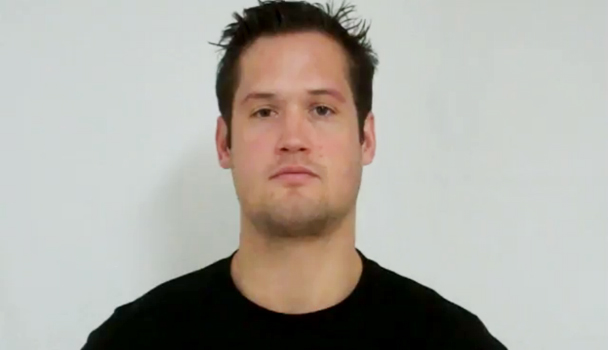
In this video:
00:00 – What is Excellent Progress?
00:13 – Losing 0.5% to 1% of body fat every 2 to 4 weeks
00:41 – Muscle gain of 1 to 2 lbs. of lean muscle every 2 to 4 weeks
01:04 – Fat loss and muscle gain are never linear
02:11 – The Gap
02:41 – The ideal is useful when setting goals and providing motivation
02:55 – The ideal is constantly moving
03:35 – You’re never truly satisfied with what you’ve achieved
04:06 – Look behind at what you’ve achieved from where you’ve started
04:18 – Toni is a great example of this
05:45 – Progress doesn’t have to be weight loss only
06:13 – “Progress not perfection” should be your motto
06:39 – Remember to look at the progress you have made
A lot of people ask this question and it’s quite a hard thing to define because it does depend on the person, the situation, the amount of body fat, for example, someone has to lose, health history and all those sorts of things. However, as a general guideline, excellent progress would be losing 0.5% to 1% of body fat every 2 to 4 weeks. So basically, if you were to be able to lose 1% body fat every four weeks, every month, you’d be doing really, really awesomely because obviously, over a year, that’s 12% of body fat, which is massive. If you compare that to the amount of weight loss, that would be a massive amount of weight loss as well.
So then, if we were to look at muscle gain, that would be gaining 1 to 2 pounds of lean muscle every 2 to 4 weeks. So, again, if you’re able to gain 2 pounds of lean muscle every month, again, you’re making excellent progress because again, if you extrapolate that over a year, then that’s 24 pounds of lean muscle, which is enormous, life-changing amounts.
So, if you feel like you aren’t making this level of progress consistently – because that’s an important thing to mention, that fat loss and muscle gain, for example, are never linear. So they never follow a very even graph. They tend to go in spurts. So one month, your total weight may not go down, but your body fat has dropped. And then the following month, what you find is that your total weight goes down and your body fat doesn’t drop quite as much. For some reason, I can’t explain and I’ve not been able to find the evidence to explain it, but I know from experience and I know all of the trainers, we’ve all experienced the exact same thing. Weight loss and muscle gain, fat loss, they’re never linear.
So, what we’re talking about is if you don’t feel like you’re making progress over a period of time consistently, then let one of us know, let one of the team know, as there’s quite a few strategies we can use to get fat loss or muscle gain moving again. But just bear in mind that, like I said, progress is never linear.
Now is a great time to talk about probably my favorite topic. Some of you may have heard me talk about it and I know all the trainers, we all love to talk about it a lot, and that is “the gap.” Now, the gap is, like I say, something very close to my heart. The gap is the area we call where between your ideal body is or your ideal life is and to where you are actually now. Basically, to make goals in our life, we all have to have an ideal, something that we strive to obtain, something we look to the future with. Now, that ideal is obviously very useful when we’re setting goals and it provides motivation. However, the main problem with judging our progress using that ideal, that thing ahead of us that we see in the future, the problem with judging our progress against that ideal is that the ideal constantly moves.
So, to use an analogy, it’s literally like the horizon. So, it’s always there, but however fast we move towards it, we can never seem to get closer to it. It constantly moves forward as well. And that’s exactly what the ideal is like for you. So, when you have an ideal body, when you get closer towards that ideal body, the ideal actually just moves. So, what happens then is you’re never actually truly satisfied with what you’ve achieved because you’re constantly looking for that ideal, saying, “Oh, well I’m not this, I’m not that. I haven’t lost this, I haven’t lost that.” And I’ve had the experience of talking to people that have lost 2, 3 stone, and that still, rather than talking about what they’ve achieved, they’re looking at that ideal, “Oh yes, but I should lose 4 stone.” And constantly looking at that ideal means that they’re never actually happy with their progress. So what I really want to encourage you to do – and I’ve seen there’s a massive, massive change for people – is when they look behind at what they’ve achieved from where they’ve started.
So, I like to use an example, and that’s Toni. Some of you may well know her. She’s been a client for a long time now and she’s a great, great person to have around and really positive the whole time. And she’s a really great example of this. When she first joined the DVCC, she wouldn’t mind me saying this, she used to smoke and wasn’t as healthy as she is now. And for quite a few months, she didn’t lose any weight at all because she literally had just stopped smoking, only just started exercising, and it was as if her body wouldn’t allow her to lose weight to start with. And if she had solely measured herself against her ideal weight without looking at actually what she’s achieved – starting to exercise, stopping smoking – she’d had given up and she now wouldn’t have lost the 4 stone that she has now.
And that’s one of the major reasons to constantly be looking at where you’ve come and what you’ve achieved so that you cannot get into that position where you’re thinking, “Oh, this is all hopeless! I haven’t achieved anything” and you lose perspective of actually what you’ve achieved. So like I say, with Toni, if she hadn’t looked back – I actually think it was about 4 or 5 months before she started losing any weight. If she hadn’t looked back at how far she had come from stopping smoking, from starting to exercise properly, she would have stopped and she wouldn’t be in the position now where she is literally 4 stone lighter and so, so much healthier, and as she says, so much happier with her body and just her lifestyle in general.
So, progress doesn’t have to be weight loss only, as I’ve just used with that example. If you weren’t exercising at all and now you train twice a week, that’s actually a massive improvement and demonstrates great progress. But if you just have in your mind this ideal of training 4 or 5 times a week and you’re thinking, “Oh, but I’m only training twice a week” and you’re looking at that ideal of 4 or 5 times a week, you’re not going to be satisfied, despite the fact that you’re actually doing a lot more now than you were in the past.
So, I really, really want to urge you to look back at what you’ve achieved so far. Look at where you’ve come. Look at all the things that have happened and you’ve managed to do and managed to achieve and look at progress not perfection. So, rather than looking ahead at that ideal to measure your progress, you look behind you and look where you’ve come to see how far you’ve come. So, the motto really, really should be “progress not perfection.”
So, remember to look at the progress you’ve made, be it fitness, strength, weight loss, body fat loss, cutting down smoking, etcetera. So look at the progress you’ve made, and you’re going to find that you’re a lot more satisfied. And what happens is, it remotivates you and you’re far more likely to carry on and achieve more and more because you’re happy with the way you are. That doesn’t mean that you stop working hard and you stop trying to achieve. It just means that you can be happier in that moment rather than being dissatisfied and allowing it to actually have a negative impact on your future goals.
So, I just want to close with reminding you it’s progress not perfection. Look behind you and look at what you’ve achieved and pat yourself on the back and say, “Well done! You’ve achieved a lot!” So, constantly be looking back at where you’ve come from to measure your progress. Remember, it’s progress not perfection. Thanks, and I’ll see you next time.




